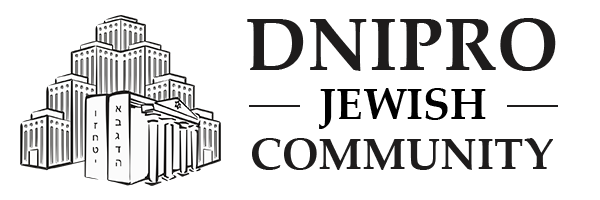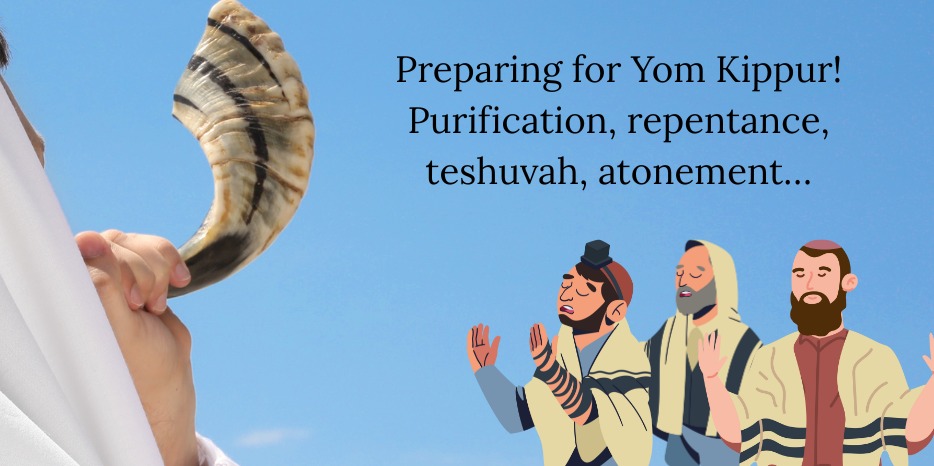Yom Kippur is a key day in the entire Jewish year and in all of human history. On this day, people become like angels—they neither eat nor drink but are in constant contact with the Almighty. The most important words used to describe the holiday are purification, repentance, teshuvah , atonement, and correction.
It is very important to come to the synagogue on this day and attend the key prayers, but it is equally important to prepare spiritually for this great day. This year, Yom Kippur will begin on the evening of October 1 and last until the night of October 2.
We invite our readers, on the eve of this greatest moment, to become familiar with an excerpt from Rabbi Eliyahu Ki- Tov’s fundamental work , “The Book of Our Heritage.”.
The Book of Our Heritage. Chapter Two
Eliyahu Ki- Tov
The Almighty, in His mercy, desires the repentance of the sinner, not his death. Therefore, He reveals on Rosh Hashem Hashanah is the gate of repentance and leaves it open until the end of Yom Kippura .
Each of us must repent of our sins and fulfill as many commandments as possible on these days in order to appear purified before the Almighty on this holy day, as it is said: “Cleanse yourselves before the Lord .”
Those who think that by fulfilling the commandments associated with everyday life day after day (putting on tefillin , wearing tzitzit , reading all the required prayers, etc.), they automatically acquire a “positive account,” that is, they have more merits than misdeeds, are mistaken.
Those who think that one must repent only of the most heinous sins—idolatry, murder, adultery, violating Sabbath prohibitions, etc.—are also mistaken. A person may have committed other, equally grave offenses, including those that are not considered crimes on earth.
Our sages teach that backbiting can be even more terrible than idolatry or murder. Moreover, it is a very common offense, and almost everyone commits it more or less frequently. After all, even someone who says, “There’s always a fire burning in so-and-so’s house,” is not entirely pure in this regard.
That slander is the greatest sin, we can judge from the fact that with the help of slander the Serpent, who tempted Adam and Eve , brought terrible disasters to the whole world.
But there are many other prohibitions that people violate thousands upon thousands of times. For example, vain and false oaths—a crime compared by the Talmud to idolatry. And yet, it is only about this sin (vain or false oaths involving the name of the Almighty ) that the Torah says: “The Lord will not atone for the sin of one who takes His name in vain.”
Most people are accustomed to these and other serious sins. They offend and oppress others, rejoicing in their hardships and shame. It should be remembered that anyone who oppresses a widow or orphan is sentenced to death by Heaven, for it is written: “You shall not oppress widows and orphans.” Many people engage in disguised usury, even though the Torah forbids lending money at interest. All this is not to mention such offenses as hatred, anger, flattery, clowning, wasting time, and conducting business on the Sabbath and holidays. Even the greatest Torah scholars will readily discover that they, too, are guilty of such offenses, the most serious of which is neglecting Torah study.
Therefore, our sages decreed that the shofar be blown throughout the month of Elul , as if warning each of us of the approach of the Judgment, at which a verdict will be rendered after examining the “personal file” in which all our thoughts and actions are recorded.
Even when standing before a flesh-and-blood king, a man trembles with fear. Yet, as Rabbi Yochanan ben Zakkai said , “Even if the king takes away all my property, it is not a final judgment, for I can acquire more. If he imprisons me, it is not the end—his successor can free me. Even if he executes me, he will only kill the body—the soul will return to the Almighty . What must a man feel, standing before the King of kings with his sons and all that he possesses? For if He condemns him to poverty, he will be poor forever; if He punishes him with torment, it will be eternal torment; and if He destroys his soul, nothing will resurrect it. How foolish are those who spend even these days, the Days of Repentance, in their daily pursuits, without thinking of the Judgment that awaits them.”
Therefore, each person should devote part of their time, day and night, to contemplating repentance; in solitude, pouring out their souls before the Creator and repenting of the sins committed during the year. It is necessary to fulfill the commandments more diligently and study the Torah more thoroughly than during the rest of the year, and also strive to perform as many good deeds as possible.
Repentance before Yom Kippur is a special, separate commandment of the Torah, as it says, “You shall purify yourselves before the Lord .” Therefore, during these ten days, a person must undertake additional obligations, even if they do not fulfill them during the year. Thus, many Jews, who usually eat bread baked by non-Jews , buy only Jewish bread during these ten days or even bake it themselves.
Particular attention should be paid to the offenses by which we offend (or harm) other people, since such a sin cannot be atoned for even on Yom Kippur lasts until the harm done is repared and the offended party forgives the offender. Forgiveness lies in the hands of the offended party, and no sacrifices or good deeds performed by the offender can replace it.
The Mishnah ( Bava Kama, 110) teaches: “Bringing an atonement sacrifice before returning the stolen item has not atoned for the sin.” One who commits an offense that harms another has sinned both before the offended person and before the Almighty . Therefore, one requires the forgiveness of both. Only after the one harmed has forgiven one will the sin before the Almighty remain , from which repentance can save.
King David in Psalm 51, the Psalm of Repentance, said: “Only before You have I sinned,” which means that the Almighty can forgive him; he does not have to ask forgiveness for this sin from people.
There are people who mistakenly donate illegally acquired property to the poor (or to public needs). This is a grave mistake, as it is said: “Transfer from hand to hand does not wash away evil.” The sages require that stolen valuables be donated to public needs only when no one, including the thief, knows to whom they belong and to whom they should be returned. In any other case, they should be returned to the owner or their heirs.
After this, one must repent of the sin and pray to the Almighty for forgiveness, for sincere repentance accompanied by confession—an acknowledgment of the offense—is like an atoning sacrifice, as it is said: “God will not turn away a broken heart.” Our sages said that offering an atoning sacrifice without repentance did not atone for the sin: “The sacrifice of a wicked person is an abomination.” This means that true repentance is inseparable from sorrow for the sin.
Many people believe that on Yom On Kippur , all their sins are automatically forgiven, and so they sin without counting throughout the year. But during the Ten Days of Repentance, they pray and fast, and on Yom Kippur does not leave the synagogue at all. This is a clear example of what the yetzer pushes a person to do. gara , the evil inclination, of which it is written: “Whoever follows it is like an ox that suddenly falls into the slaughterhouse”—for an ox that is being fattened for slaughter believes that the food will benefit it. Now we see how mistaken these people are. Even if Yom Kippur atoned for sins without repentance; it would only apply to occasional, unsystematic violations. It’s impossible to imagine Yom Kippur atoned for the sins of an unrepentant person who, sinning, says: “On Yom Kippur, everything will be redeemed!”
Therefore, let a person not rely on the atoning power of Yom Kippur , may all the days of the year be like Yom for him. Kippur , and on the Days of Awe he will be doubly strict in monitoring his thoughts and actions.
It is necessary to go to the synagogue and the beit midrash (“house of learning”) during these days and listen carefully to everything that the rabbis and Torah teachers say about repentance and the rules of conduct.
Every person is obliged to study the Books of Musar every day, which tell us how every Jew should behave and improve himself, and teach us to fear the Most High and honor Him.
This must be done, even if it results in less time for him to study other parts of the Torah, because, as the Mishnah says (Avot, 3), “Where there is no fear of the Most High, there is no wisdom.” After all, an uneducated but G-d-fearing person is preferable to a scholar who does not know what the fear of the Most High is.
A person is obliged to devote all his free time to studying the Torah, so that, by studying it, he prepares to fulfill all that it commands, and not simply out of curiosity or for the sake of the respect of others. Only then will his teachings be pleasing to the Most High.




